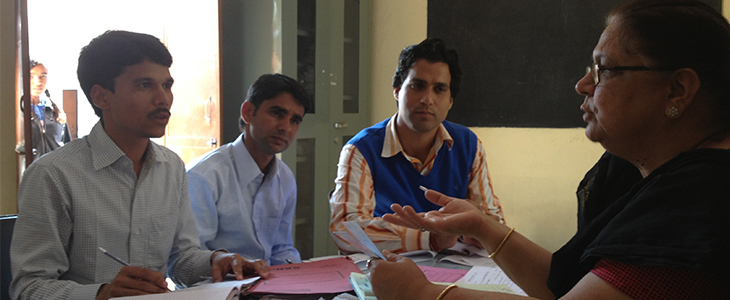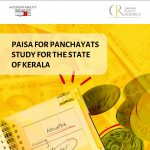
Bridging Leadership and the Civil Servant
31 July 2015
While some aspects of dysfunctionality within the government system have been built up through several civil-servant driven decisions that go against fundamentally accepted principles of federalism and decentralization, the civil servant cannot be blamed for all weaknesses of the governance system. Moreover, it would be unfair to cast the blame on each new crop of civil servants for the mistakes of her predecessors. Today’s administrative system is a challenging environment, with many stakeholders and interests that are often at loggerheads with each other. Even as fractured systems are being rationalized, a civil servant in the field has to deal with situations that arise, there and then. This brings us to the next question, which is whether civil servants can consciously cultivate the qualities required to be an ‘adaptive’ or ‘bridging’ leader.
One of the key attributes for a successful bridging leader is to have low ego needs. However, here, the civil servant, particularly the IAS, starts off with a distinct disadvantage. There is nothing in the training, upbringing and work environment of the IAS officer that teaches an individual to cultivate low ego needs. On the other hand, right from the day that they clear a tough competitive examination to enter the service, IAS officers are catapulted to stratospheric heights. They are the objects of adulation and envy feted by their castes, states, districts, towns and villages. Society celebrates the IAS officer, far out of proportion to his achievements. The fat dowries offered for his hand, the exalted traditional bowing and scraping that still survives in the name of official tradition in many States, the awe in which junior officers hold their IAS colleagues or bosses, are very dangerous for the ego. Most officers go into the field to take up positions that are legacies of the colonial era, occupy bungalows left behind by the British and rule the district in exactly the same way that their ICS predecessors did. It takes a very level headed individual to not allow these factors to go to her head. Thus it is difficult for IAS officers to imbibe the attribute for having a low ego need. In other words, IAS officers are critically disadvantaged in becoming bridging leaders. Those who do become such leaders are exceptions, having the strength of character to not get carried away by the fuss that society makes over them.
The question then remains as to whether officers can be trained to become adaptive or bridging leaders, who can smoothen out conflict, harmonise diverse interests and also motivate and protect other individuals so that they can perform acts of leadership. I believe that one single training programme or strategy cannot result in the personality attributes that are required for individuals to imbibe these skills. To become a good leader is a process of daily growth, which happens through a combination of training, response to the environment and internal discipline. It requires a nurturing environment, in which training is but a part, for officers to grow these skills.
One way to start is to look at the divergent democratic cultures of discourse that prevail in different States. IAS officers know this well. In some States where there is a more egalitarian culture of interaction and discourse, IAS officers generally tend to have lower ego needs. They tend to be less arrogant and more accommodative of different views. At first sight it is easy to dismiss this as the existence of a feudal culture in some states, which probably has a correlation with low human development indicators. However on a closer look this is not so. There are States where high human development indicators coexist with a culture of political personality cults and hierarchical relationships between members of the civil service based upon that critical identifying criterion, the batch of selection.
Taking from these observations, I have listed a few things that could be done in (a) the training space, (b) in the overall design and structure of the civil service and (c) in terms of changing the personal habits of individual in the civil service. If these are followed, we have a better chance of the kind of qualities required for an adaptive, bridging leader to flower.
More of that, in my next blog.





